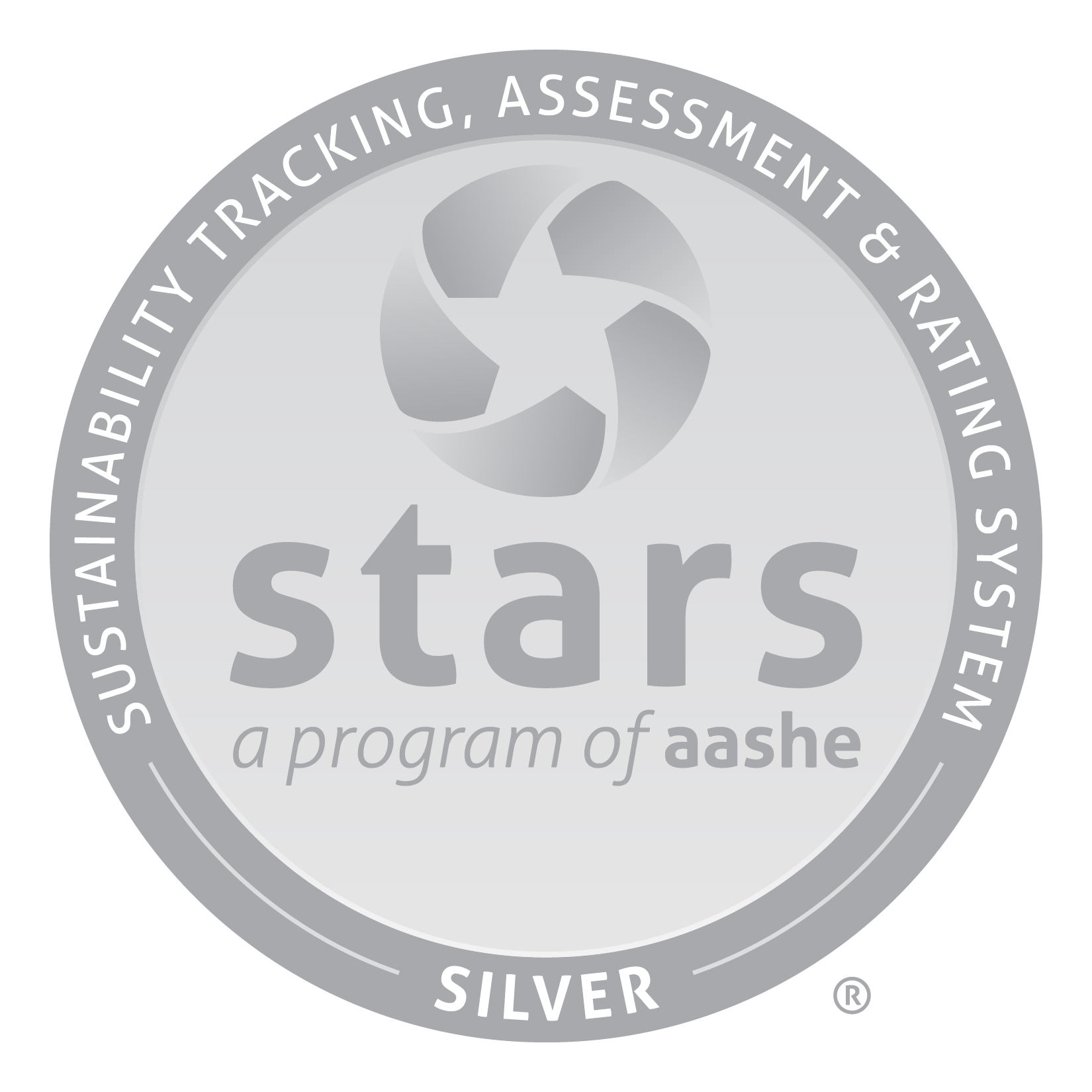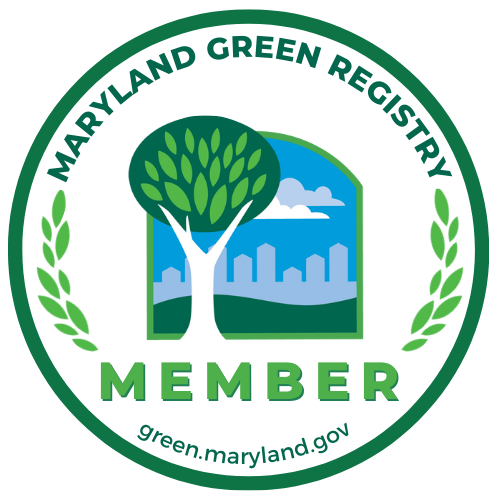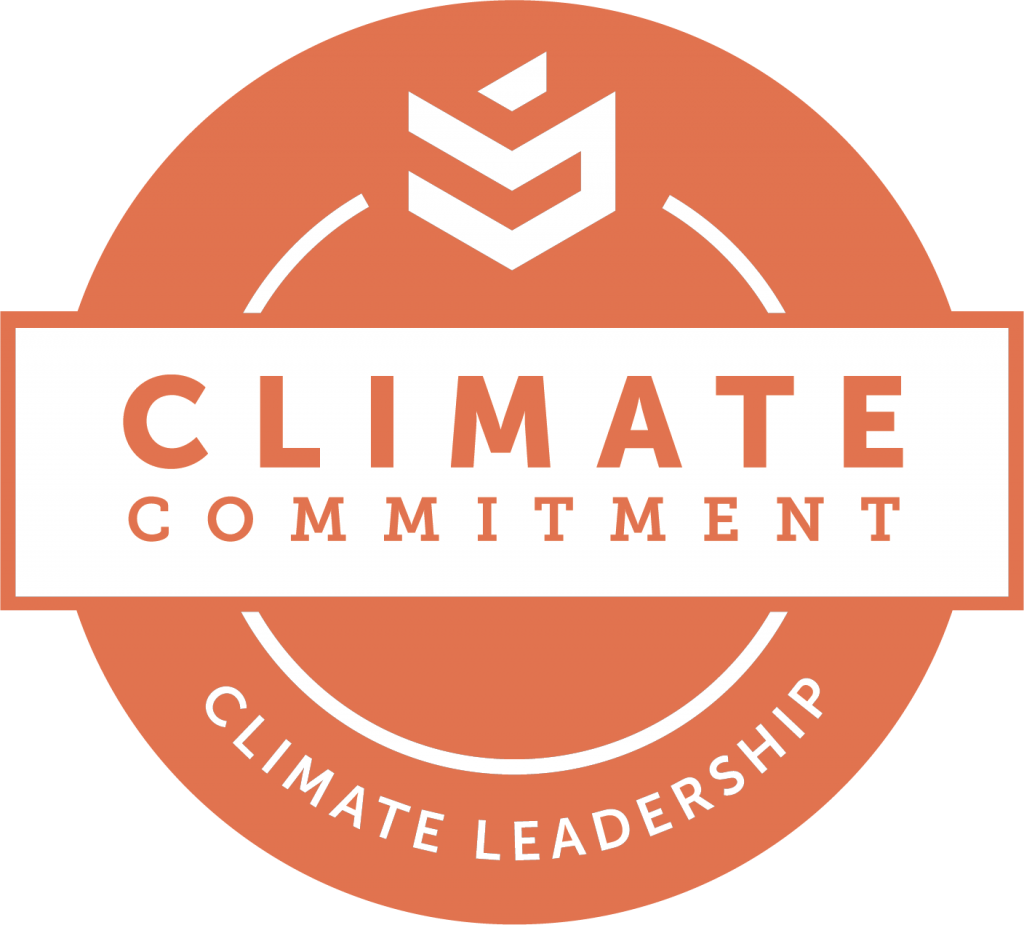The University of Maryland, Baltimore’s (UMB) Sustainability Strategic Plan outlines the overarching goals and strategies for University sustainability from 2022-2026. The plan was developed by UMB students, staff, and faculty, and feedback was received from groups across UMB. The plan was officially launched at the end of February 2022 and will serve as a living document for guiding sustainability initiatives at UMB. The plan was most recently updated in April 2022 after the passing of the Climate Solutions Now Act of 2022 (Senate Bill 0528) in the Maryland legislature.
Strategic Plan
Minimize UMB’s greenhouse gas emissions in support of our campus carbon neutrality goal of 2045.*
Increase UMB’s renewable energy source percentage to 75 percent by 2030.
![]()
Accomplished
February 2023: In addition to the three power purchase agreements in which UMB participates, we are purchasing Green-e Renewable Energy Certificates (RECs) to cover the remaining portion of UMB’s electricity usage, bringing us to 100 percent renewable electricity for Calendar Year 2022. We will continue to purchase Green-e RECs to achieve 100 percent renewable electricity each year moving forward.
Reduce campus greenhouse gas emissions from campus energy use by 60 percent by 2031 through efficiency projects.
![]()
On Track
Reduce greenhouse gas emissions from commuters and university vehicles by 50 percent by 2050.
![]()
We Could Do Better
Purchase high-quality third-party carbon offsets from local or regional vendors to cover 20 percent of University-sponsored air travel by 2030, with all University-sponsored air travel being offset by 2045.
![]()
Not Yet Started
Minimize the environmental impacts of UMB’s built environment.
Improve UMB’s practices to provide ecological landscapes that benefit all life within our campus community.
![]()
On Track
Decrease potable water use on campus.
![]()
On Track
*This goal has been updated as of April 2022 due to the passing of the Climate Solutions Now Act of 2022 (Senate Bill 0528).
Incorporate climate resilience considerations into campus planning and operations.
Complete a resilience assessment to provide a baseline of current resilience activities on campus and in the community and identify current vulnerabilities related to climate change.
![]()
On Track
Optimize sustainable features and incorporate sustainability into new construction, renovations, and smaller building projects.
Decrease building net direct greenhouse gas emissions by 20% by 2030 (2025 baseline) and achieve net zero direct greenhouse gas emissions by 2040.
![]()
On Track
Meet IgCC/LEED Silver requirements for new construction and major capital renovation projects by requiring building energy use to meet or exceed ASHRAE 90.1-2010 standards.
![]()
On Track
Optimize the efficiency and utilization of campus infrastructure.
Reduce the assignable square footage per total FTE faculty, staff, and students by 5% by 2030.
![]()
On Track
Design and promote a pedestrian- and bicycle-friendly interconnected multi-modal network linking destinations within the UMB campus to the broader Baltimore community.
Seek Silver-level Bicycle Friendly University status by 2025.
![]()
We Could Do Better
Create a Bicycle and Pedestrian Master Plan for the campus.
![]()
We Could Do Better
*This goal has been updated as of April 2022 due to the passing of the Climate Solutions Now Act of 2022 (Senate Bill 0528).
Promote source reduction, reuse, and recycling & composting across UMB's campus.
Reduce overall waste disposal at UMB by 10% by 2025.
![]()
On Track
Increase UMB’s recycling rate to 35% by 2025.
![]()
We Could Do Better
Expand opportunities for composting on campus.
![]()
Accomplished
Identify, enable, and promote green product solutions that address the environmental, social, and economic impacts on the UMB campus and surrounding communities.
Convert 100% of UMB's passenger fleet vehicles to zero emissions vehicles (ZEV) by 2030, convert 100% of other light duty fleet vehicles to ZEV by 2036, and work to right-size the fleet.
![]()
On Track
Identify and prioritize categories of spending where local, sustainable purchasing can be enhanced.
![]()
On Track
Promote sustainable eating practices (locally-sourced, plant-forward, and low-waste) among the UMB population.
Promote purchasing sustainable food (local and plant-forward) in on-campus dining locations and through personal choices.
![]()
On Track
Promote catering and food ordering habits that minimize food waste and single-use disposable packaging waste.
![]()
On Track
*This goal has been updated as of April 2022 due to the passing of the Climate Solutions Now Act of 2022 (Senate Bill 0528).
Create and maintain a constant communication flow with the entire campus community regarding sustainability.
Foster working relationships with schools and departments, and partner on collaborative efforts.
![]()
On Track
Communicate to the campus on a regular basis with initiatives and tips to keep sustainability a part of the UMB culture.
![]()
On Track
Ensure that students leave UMB with an understanding of climate change and knowledge about sustainability.
Include a sustainability course in UMB’s curriculum across all schools and disciplines.
![]()
On Track
Develop a robust Green Labs program to ensure that academic research is conducted as efficiently and sustainability as possible.
![]()
On Track
Click on the links below for more information.
Contact
Office of Sustainability
620 W Lexington St
6th Floor
Baltimore, MD 21201






